However, while he was undoubtedly discriminated against in a time of endemic racism, there is perhaps a more prosaic reason for his non-selection for Scotland: he was born in England. In fact, he spent the first 13 years of his life in Staffordshire before he was able to join his birth mother in Edinburgh.
His father was James Oxley, a black medical student from Trinidad at Edinburgh University. While in Scotland he had a relationship with Isabella Nichol, the unmarried daughter of a local joiner, and when she fell pregnant she went far away to Burton-on-Trent to have the baby, presumably to avoid the inevitable stigma of an illegitimate child, and a black one at that.
Meanwhile his parents did marry in Edinburgh early in 1910, using the Scottish system of 'marriage by declaration' but it appears to have been purely for practical reasons as six weeks later his father sailed for America, never to return. Dr James Edwin Tyndall Oxley, who had just graduated with first class honours in medicine, settled in Pennsylvania, where he married for a second time in 1919 (apparently without seeking a divorce) and raised another family. He died in 1927 of pneumonia.
Edwin's mother, meanwhile, remained in Edinburgh and he finally joined her there in 1921, enrolling at George Heriot's, a fee-paying school. Clearly her financial circumstances had improved and it may be that the father sent money to cover the boy's education.
At school he was given the nickname Sam, short for 'Sambo', which went unquestioned at the time and stuck throughout his life. He stood out as probably the only black pupil but, as an athletic and personable young boy, he fitted in well, and ended up captaining the school rugby team as well as playing for its cricket eleven.
When he left school in 1927 it was a daunting time for a black man to enter adult life in Edinburgh. This was the year of the infamous 'colour bar' in the city, imposed by some bars and restaurants against African and Asian students. Although that racist ban caused such condemnation that it was soon withdrawn, it reflected a society where feelings about race could run high.
It was little surprise that he stuck to the people he knew, and continued to play rugby with Heriot's FP. They were then one of Scotland's top sides, and were the country's unofficial champions in 1928 and 1929. A wing forward, he remained with the club throughout the following decade, captaining the team for three seasons and regularly praised in the media, but whenever representative sides were named, he was never in the mix.
At the very least, he would have been a natural fit for the Edinburgh team in the annual inter-city clashes with Glasgow (and would not have been the first black player for Edinburgh, as James Robertson did so in the 1870s). But perhaps because the inter-city matches were seen as trials for the international team, he never got the nod.
His only honour was being picked for a one-off Glasgow & Edinburgh Select which faced the All Blacks at Old Anniesland in October 1935. The match was narrowly lost 8-9 but although he did well he was not named in the next Edinburgh fifteen – 'a notable omission' according to one newspaper.
He finally retired from the game in 1939 and was immediately taken onto the Heriot’s selection committee, retaining his link to the club for many years.
Meanwhile he went into business as a commercial artist, running Oxley Studios in Cockburn Street, and his work sometimes turns up at auction. In 1947 he married Inga Peace, a fashion illustrator, and although they had no children they remained together until his death. Sadly, he died early in 1969, aged 61, after taking an overdose.
From my researches in recent years, it is clear that Eddie Oxley is just one example of Scotland's hidden history of black sportsmen and women, who overcame discrimination to make their mark in sport. I hope that bringing their achievements to a wider audience will inspire a greater appreciation of the challenges they faced, and I am convinced that there are more stories waiting to be uncovered.
Edwin James Oxley, rugby player.
Born 4 May 1907 in Burton-on-Trent, Staffordshire.
Died 19 January 1969 in Balerno, Edinburgh.
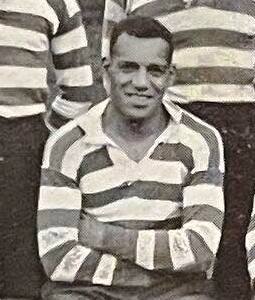
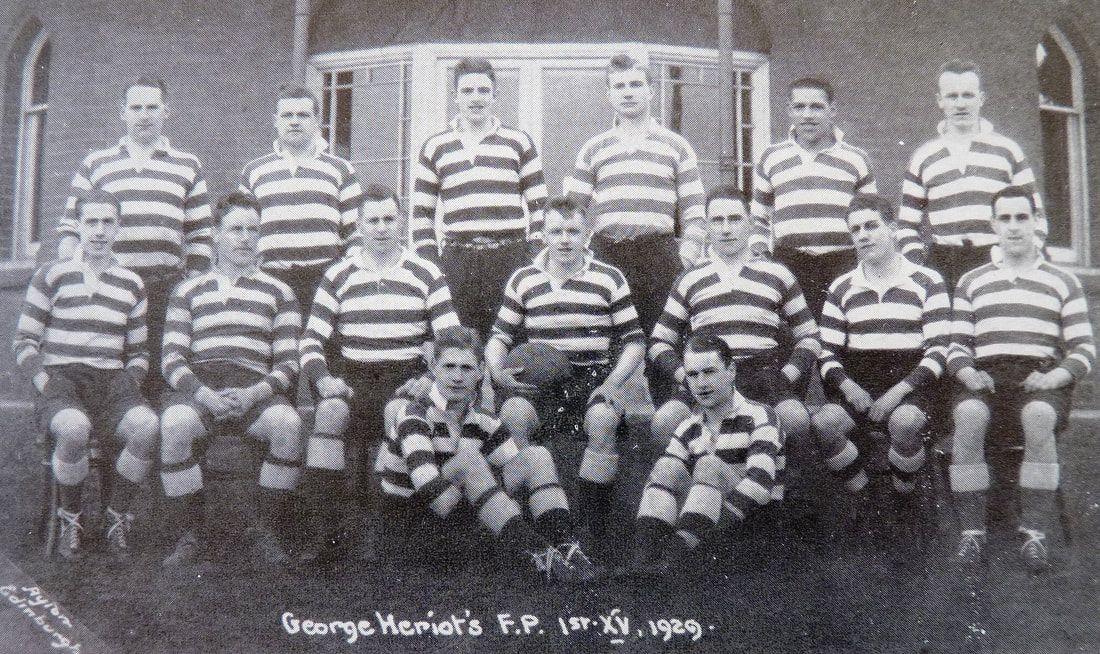
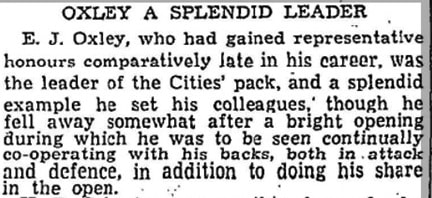
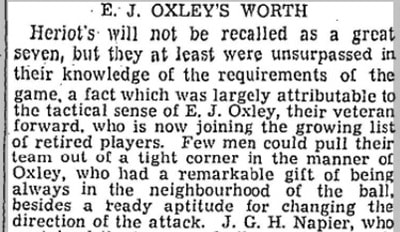
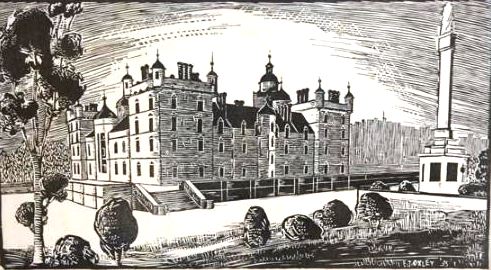
 RSS Feed
RSS Feed